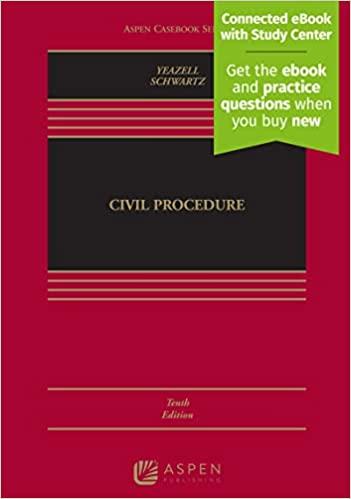Question
Legal Field: Civil Litigation Focus Area: Boilerplate Discovery Objections CASE: Wesley Corp. v. Zoom T.V. Prods., LLC , No. 17-10021, 2018 U.S. Dist. LEXIS 5068
Legal Field: Civil Litigation
Focus Area: Boilerplate Discovery Objections
CASE:
Wesley Corp. v. Zoom T.V. Prods., LLC, No. 17-10021, 2018 U.S. Dist. LEXIS 5068 (E.D. Mich. Jan. 11, 2018).
FACTS:
In Wesley Corp, Plaintiff sought, among other things, a Motion to Compel Defendants' responses to Plaintiff's discovery. Plaintiff argued that Defendants' use of boilerplate objections in the returned discovery requests were improper and constituted obstructionist behavior. Plaintiff asked the court to compel Defendants to provide proper responses to Plaintiff's previously submitted interrogatories and requests for production. The court denied Plaintiff's motions without prejudice and gave Defendants a second chance to adjust their responses. The court also warned both parties that additional intervention by the court in this discovery dispute would likely result in significant sanctions.
INSTRUCTIONS: Beginning with Wesley and using available reference and case materials found on Lexis or in other sources, answer the following questions: 1) What areboilerplate objections? Why do courts, in general, have such a strong distaste for boilerplate objections? 2) What Federal Rules of Civil Procedure apply to boilerplate objections? Give at least 3 examples and explain how each rule applies. 3) A party finds itself sanctioned by the court for its use of boilerplate objections in discovery responses.Describe under what circumstances this might occur.
Step by Step Solution
There are 3 Steps involved in it
Step: 1

Get Instant Access to Expert-Tailored Solutions
See step-by-step solutions with expert insights and AI powered tools for academic success
Step: 2

Step: 3

Ace Your Homework with AI
Get the answers you need in no time with our AI-driven, step-by-step assistance
Get Started


